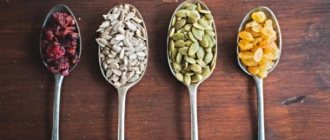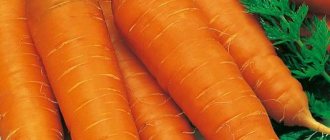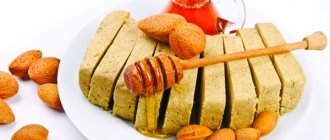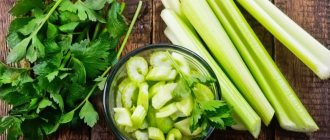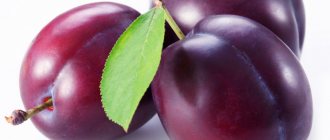Pumpkin during pregnancy:
- benefit
Pumpkin is a fairly popular product. In addition to its taste, the vegetable has low calorie content, only 22 kcal per 100 grams, which makes it dietary. This is very important for pregnant women who are afraid of gaining weight after childbirth.
Due to its low calorie content, but high nutritional value, pumpkin facilitates the work of the liver and kidneys, and makes it possible to relieve the digestive tract. The soft and delicate structure of the vegetable pulp protects the mucous membranes of the gastrointestinal tract, so pumpkin can be eaten in case of liver and gallbladder diseases, gastritis, colitis, and peptic ulcers.
Pumpkin medicinal nutrition (diet) has a beneficial effect on the cardiovascular system, helps get rid of obesity, and normalizes metabolism.
Drinking pumpkin juice during pregnancy relieves mood swings, increased emotionality, worry and anxiety, normalizes the nervous system and improves sleep quality.
Pumpkin during pregnancy helps get rid of swelling, as it has a mild diuretic effect.
Due to the significant content of useful substances, the following effects are achieved:
- Vitamin A supports vision and nourishes the retina.
- B vitamins support the functioning of almost all internal organs and systems, ensure cell growth and tissue repair, improve muscle tone, provide prevention of atherosclerosis, dermatitis, diarrhea, participate in the process of hematopoiesis and the production of the “happiness hormone”.
- Calcium takes part in the formation of the baby’s skeletal system and the process of hematopoiesis.
- Phosphorus and magnesium are involved in various types of metabolism and synthesis.
Pumpkin acts as an antioxidant, removes waste and toxins from the body, as well as harmful cholesterol from blood vessels. It is used not only as a food product, but also for external use in the treatment of burns and eczema.
This unique vegetable relieves the most common and unpleasant problems during pregnancy: swelling, toxicosis, constipation, indigestion. Pumpkin is practically a record holder for iron content, which is indispensable during pregnancy for both the expectant mother and the child. Iron protects against iron deficiency anemia, which often occurs during this period.
Pumpkin is recommended for all pregnant women; it can cause harm to the body in rare cases. These include:
- Tendency to allergies. Red and orange vegetables are contraindicated for allergy sufferers, especially during pregnancy.
- Exacerbation of gastrointestinal diseases (ulcers, gastritis).
- Stool disorders (diarrhea).
- Exacerbation of diseases of the excretory system (kidneys, bladder).
Also, harm to pumpkin is inevitable if it is consumed in excess. If you do not follow the norm and regularly overeat a vegetable, you will eventually develop an aversion to it, and you may experience weakness, nausea and dizziness.
Beneficial properties for pregnant women
Rich vitamin composition and low calorie content are the main advantages of such a product from the garden. Due to the fact that the vegetable has a low carbohydrate content, but also contains sugar, it is used both in the preparation of first courses and in desserts.
However, for a pregnant woman who monitors the benefits of the foods she eats, it is important to know all the beneficial qualities of such a vegetable, of which there are many:
- It has an immunostimulating effect and helps the body fight seasonal viral diseases.
- Allows you to increase hemoglobin in the blood, used to prevent anemia during late pregnancy or before a planned cesarean section.
- Potassium from pumpkin pulp normalizes heart function.
- The abundance of fiber helps to normalize the gastrointestinal tract, which is especially important in late pregnancy and chronic constipation.
- The choleretic and mild diuretic effect normalizes kidney function.
- It has an antiemetic effect; it is especially useful to drink freshly squeezed juice with honey during early gestosis.
- “cleanses” the body of waste and toxins and is used as a dietary supplement in the prevention of atherosclerosis.
- Normalizes the level of bad cholesterol.
- It has a sedative effect, helps relieve anxiety, and reduce restlessness in pregnant women before childbirth.
Pregnancy is a special time for proper and balanced nutrition. Pumpkin is a vegetable that has a pleasant taste and rich composition, which allows the baby to develop correctly in the womb.
Pumpkin recipes for pregnant women
Pumpkin is such a versatile product that all parts of the plant are used in cooking: pulp, seeds, flowers, stems and leaves. The vegetable can be consumed raw, subjected to heat treatment, and used to prepare natural juices and decoctions.
Pumpkin is a low-calorie and healthy vegetable. Not only the pulp is edible, but also the seeds and juice. The vegetable is eaten raw and processed. Pumpkin during pregnancy should take one of the main places in the list of healthy foods. But you need to know the rules for its use, because sometimes it can cause harm to the expectant mother and baby.
Pumpkin in the diet during pregnancy
How to eat pumpkin for benefits
In order for pumpkin to become a healthy product in the diet, certain rules must be followed during its preparation and subsequent consumption. They include the following conditions:
- Despite the fact that pumpkin can be stored for several years, it is necessary to choose fresh fruits for eating. It is advisable to purchase fruits from trusted suppliers, but it is better to take them from friends or grow them yourself.
- Before cooking, the pumpkin can be soaked in water for a while, and the peel can be doused with boiling water if it is intended to be used for food (sometimes this is important, since it contains many useful microelements).
- You need to start with a teaspoon to prevent allergic reactions of the body and digestive disorders. Recommended for all pregnant women, even if there was no previous individual intolerance to the product. In the absence of unpleasant consequences, pumpkin can be included in the daily diet, but following the recommended daily dose (no more than 0.5 kg of pulp and 200 ml of undiluted juice per day).
- For maximum benefit, it is better to avoid prolonged heat treatment. An excellent option is fresh pulp, steamed or boiled. Dishes with a lot of oil, such as fried vegetables, can negatively affect the functions of the gastrointestinal tract and the body as a whole.
- Industrially produced juices, purees, and cereals are less valuable than similar products made at home from fresh vegetables.
Following simple rules will help supplement the menu with a healthy and tasty product that can be used in preparing a variety of foods. Pumpkin goes well with meat dishes, other vegetables and can be used as an independent dish.
In addition to pulp, oil is especially popular. It is made by squeezing seeds; the composition is considered more valuable, since all substances are concentrated in it to a greater extent. It is enough to take a teaspoon of oil daily and this will be enough to support the body during pregnancy.
During pregnancy, pumpkin can be a healthy treat that provides the body with the necessary vitamins and other compounds necessary for the normal well-being of a woman and the development of the unborn baby.
Benefits of pumpkin during pregnancy
The vegetable, consisting of 90% water, is a storehouse of vitamins and microelements. There are 23 kcal per 100 g of product, so a woman will not have to worry about her weight.
In the early stages
The product has a beneficial effect on the body of the expectant mother and fetus. It can alleviate the condition of a pregnant woman with toxicosis in the early stages. The vegetable has the following properties:
- promotes the proper formation of the baby’s musculoskeletal system - thanks to the phosphorus and calcium that the culture contains;
- improves the functioning of the nervous system;
- eliminates depression;
- helps fight insomnia that occurs in early pregnancy due to hormonal changes;
- quenches thirst.
What to look for when buying a pumpkin
Most often, when choosing this vegetable, you should focus on color. If you think: the brighter the pumpkin, the less beneficial it is for a pregnant woman, this is a mistake.
Bright specimens contain more carotene, which means the woman will receive a huge amount of vitamin A. However, in most expectant mothers, an excessive dose of this substance can cause an allergic reaction.
It is best to give preference to a pumpkin of moderate brightness with a thick, strong, tough skin.
Pumpkin juice in the diet
The product supports the health of a woman and her unborn child. This is a good source of biologically active substances. Has diuretic and anti-inflammatory properties. Normalizes the functioning of the gastrointestinal tract. It has a calming effect, so you should drink pumpkin juice in the evening.
Juice to relieve nausea
In the first trimester of pregnancy, the product will help get rid of nausea. To use it, perform the following steps:
- the vegetable is peeled and seeds removed;
- use a juicer to squeeze out the juice;
- dilute it with water in a 1:1 ratio - this will help reduce the negative impact of the product on the stomach of the expectant mother;
- drink the juice in small sips during an attack of nausea or at other times, half a glass.
Not everyone likes the taste of pumpkin juice, so you can add other products to it that will increase the organoleptic properties. It is worth considering the presence of allergies to certain substances. It is better to choose seasonal vegetables, fruits and berries. You can also add honey, sugar and various spices:
Carrot-pumpkin juice will be beneficial for the expectant mother’s body. Add 1 tbsp to it. l. vegetable oil, which promotes the absorption of vitamins. Cream or sour cream is also used for this purpose.
Pumpkin juice is useful when planning pregnancy. It is a source of B vitamins. They help prevent cleft palate, as well as the development of neural tube and fetal brain defects.
Can pregnant women eat pumpkin?
Pumpkin will be of great benefit during pregnancy. Let's take a look at what's in this big orange berry. The most important thing is vitamins:
- A (beta-carotene);
- B vitamins;
- C;
- E;
- D.
Perhaps not everyone has heard about vitamin T, which is extremely important for the human body. It is still little studied, but scientists say with confidence: it is this substance that can regulate metabolism, allowing you to slow down the process of gaining excess weight in time. During pregnancy, this is more important than ever! The rare vitamin T is not found in every product. But pumpkin has it.
Beta-carotene is indispensable for the normal functioning of the visual organs, vitamin E is necessary for the skin for rapid regeneration, B vitamins are involved in the metabolic process. Vitamin C is an antioxidant that prevents the body from aging prematurely and actively fights tumor processes.
Why you shouldn't eat pineapple in the second trimester
If you drink pumpkin juice obtained from raw berries every day, the folic acid taken in tablet form, which is necessary for the proper formation of the fetal neural tube, will be better absorbed.
Pumpkin for pregnant women in the first trimester is useful for its “ability” to curb toxicosis and alleviate morning ailments.
So the question of whether pumpkin is useful in the early stages has a positive answer in almost all cases. The exception is an allergy to this product. However, it is observed infrequently.
You can eat pumpkin in different forms:
- boiled;
- baked;
- parenom;
- cheese.
Our culture is most characterized by the habit of eating healthy berries, prepared in the form of puree soup or porridge, to which interesting ingredients are added to improve taste.
Pumpkin seeds
This is the most high-calorie part of the vegetable. It is recommended to replace sweets. They can be a great snack because... Pregnant women need fractional meals.
The seeds are often used to prevent or control helminthiasis. A woman may not even be aware of the presence of parasites, and they will create obstacles to the full development of the child. Pumpkin seeds during pregnancy will help cope with this problem and will not harm the fetus.
To do this, use 1 tbsp. l. on an empty stomach for at least a week. During the treatment period, drink a lot of fluids.
In addition, the benefits of pumpkin seeds for the expectant mother’s body are as follows:
- they increase hemoglobin;
- help the proper development of the fetus at the beginning of pregnancy, because contain folic acid;
- relieve nausea during toxicosis;
- strengthen the defenses of the expectant mother’s body;
- reduce the load on the liver and kidneys - subject to regular use;
- remove toxins from the body;
- have a beneficial effect on the musculoskeletal system;
- eliminate excess hydrochloric acid, which is useful in the fight against heartburn, which occurs in late pregnancy;
- improve the condition of skin, hair and nails.
The seeds must be of high quality. You can eat them whole. They are often ground into powder and added to salads and desserts. Raw seeds will bring more benefits to the body. Heat-treated foods reduce the amount of nutrients and destroy amino acids.
The product can be dried without using high temperatures. Then its shelf life will be 3 months. To eliminate insomnia, prepare a decoction of the seeds in milk.
Pumpkin as a healthy vegetable
Today there is no common opinion about the origin of pumpkin. Some “attribute” the vegetable to American origin, others to Chinese origin. There are 4 types of pumpkin in total, of which only table varieties are suitable for consumption. The main advantage of pumpkin is that it belongs to dietary foods that are useful for diseases of the liver, gall bladder, gastritis, and colitis.
This vegetable helps in healing stomach and duodenal ulcers. The pumpkin diet has an excellent effect on cardiovascular diseases, obesity, and metabolic disorders.
Pumpkin juice calms the nervous system, promotes good sleep, quenches thirst, and is used as a diuretic for edema and kidney diseases.
The pulp of this vegetable contains many carotenoids, from which vitamin A is synthesized. The pulp also contains flavonoids - plant antioxidants that reduce the risk of pathological changes in our cells.
Pumpkin is rich in vitamins B, E, C, PP and microelements. Among vegetables, pumpkin is the leader in iron content; it contains a lot of copper and phosphorus. Pectin substances in its composition remove toxins and metabolic products from the body.
Vegetable fiber is well absorbed by a weakened body. For this reason, nutritionists advise people to consume pumpkin dishes after operations, illnesses, or with weakened immune systems. This vegetable is useful for liver and kidney diseases; it helps eliminate cholesterol due to its high pectin content.
The crushed pulp of the vegetable is applied as a compress to the skin for eczema, burns, and dermatitis.
Nutritionists advise people who have recovered from viral hepatitis A to consume this vegetable, because the composition of the crumb helps restore the antioxidant functions of the liver.
If you use pumpkin dishes for a long time, you can achieve the removal of excess fluid from the body. This diet was prescribed to patients back in pre-revolutionary Russia. It involved a 3-4 month course of treatment with consumption of 0.5 kg of raw pumpkin per day or 1.5 kg of boiled or baked pumpkin.
Eating raw pumpkin
Pumpkin can stabilize blood pressure
All useful substances are preserved in fresh pulp. It has a beneficial effect on the pregnant woman’s body, because... contains vitamins A, group B, antioxidants. Has the following properties:
- removes cholesterol from the body;
- stabilizes blood pressure;
- participates in the formation of fetal bone tissue.
Eating raw pumpkin during pregnancy is beneficial for women who experience spikes in blood sugar levels.
If you don’t like the taste of a vegetable as a stand-alone product, you can combine it with other ingredients. The following salad is suitable for pregnant women:
- 0.4 kg pumpkin pulp;
- 4 medium apples;
- 0.5 tbsp. walnuts;
- olive oil;
- lemon.
The nuts need to be chopped and quickly fried in a small amount of oil. Peeled apples and pumpkin need to be grated. Add lemon juice and cooled nuts. Lightly salt and sprinkle with sugar or fructose.
Methods of use
Now pumpkin is rightfully gaining popularity. Finally, it has come out of the shadow of millet porridge, and now innovative chefs are preparing amazing dishes from it.
They make wonderful pies with pumpkin filling , bake in the oven with cheese and olive oil, put in vegetable salads, and add to meat and game.
It would be a good idea to prepare a light pumpkin puree soup with cream . To do this, boil the pumpkin until soft and puree in a blender. Dilute with low-fat cream until the soup becomes thick, add a little fried onion, sprinkle with Parmesan and garnish with a sprig of rosemary.
This soup for dinner is a real find. Nourishing, tasty, and absolutely will not harm the figure of the expectant mother.
a pumpkin and arugula salad for dinner . Fry the pumpkin, cut into thin slices, for a few minutes in a frying pan with a tiny amount of oil.
Mix the slices with red onion, a teaspoon of pine nuts and add a little grated cheese. The arugula in this salad will be the finishing note. Useful, beautiful and easy!
The expectant mother needs to make friends with pumpkin. It can be eaten raw, steamed, or in complex dishes. You can stuff the pumpkin with meat or vegetables.
Pumpkin juice , both natural and as part of smoothie cocktails, will also be beneficial
Pay attention to pumpkin seeds, they contain a lot of pumpkin oil, which is filled with all the miraculous properties of pumpkin, only in concentrated quantities.
Vitamins Elevit when planning pregnancy: composition, instructions, reviews - in this article.
What is the treatment for pyelonephritis in pregnant women? Read here.
And here is everything about cytomegalovirus infection during pregnancy.
Boiled and steamed pumpkin
The thermally processed product loses some of its vitamins, but remains very useful. It has the following effect:
- improves blood composition;
- fights swelling;
- has a beneficial effect on the intestines.
Cooking a vegetable is easy. You can use this recipe:
- take 1 kg of pumpkin and 1.3 liters of water;
- peel the vegetable;
- cut into cubes;
- fill with liquid;
- boil for 10 minutes, adding cardamom or vanilla;
- Sprinkle the finished dish with sugar.
You can make puree from boiled pumpkin. You will get a delicious filling for pies.
Various porridges are prepared based on the vegetable. For the dish you will need the following ingredients:
- 220 g pumpkin;
- 75 g millet;
- 0.5 tbsp. l. butter;
- 150 ml water;
- 150 ml milk;
- sugar, salt.
The vegetable is cut and peeled. Place in a saucepan, add water, and heat. Gradually add cereal. Keep on low heat until it thickens. Large pieces of vegetables can be chopped. Add milk and spices to taste.
Many dishes can be prepared from vegetables
Some housewives put the porridge in the oven for a few minutes. Next add butter and stir.
Steamed pumpkin is prepared as follows:
- peel the vegetable, cut into cubes;
- place on a baking sheet with sides;
- watered with water and honey;
- place in the oven for 20 minutes. at a temperature of 180 °C.
Dried fruits are often added to the dish. Dried apricots and raisins are suitable.
The vegetable can also be baked. It is cut into pieces and placed on a baking sheet. Add honey and nuts. Place in the oven. When the slices become soft, remove them. The product can be baked with chicken, apples, etc.
Precautionary measures
You need to choose a pumpkin by color. The brighter the pumpkin, the more carotene it contains , which means that a pregnant woman will receive a significant dose of vitamin A.
If you want something exotic, you can buy Spaghetti pumpkin; its pulp is very similar to Italian pasta.
When choosing a pumpkin, pay attention to the condition of the skin; the skin should be thick, strong, and tough, otherwise you will find a spoiled product inside.
If a pregnant woman has a tendency to increase blood sugar, then it is better not to eat raw pumpkin, but replace it with baked pumpkin. Remember also that pumpkin seeds are high in calories .
Take care of your health and eat pumpkin. This product boasts such a wide list of advantages that it is difficult to describe them in one article.
The main thing is not to forget that during pregnancy, pumpkin rises to the podium and becomes one of the most preferred vegetables. No harm, just pure benefit!
Pregnant women are allowed to eat pumpkin from the first weeks of pregnancy. The vegetable is an unpretentious and very healthy product, rich in all essential nutrients and vitamins. You can use it to prepare porridges, main courses, desserts and even baked goods.
Composition and nutritional value of pumpkin
All the benefits of pumpkin for a pregnant woman lie in its composition, which will become obvious from the table (all data is given per 100 g of product):
| Vitamins | Macronutrients | Microelements |
| A (0.25 mg) | Potassium (200 mg) | Iron (0.4 mg) |
| B3 (0.5 mg) | Calcium (25 mg) | Manganese (0.04 mg) |
| B5 (0.4 mg) | Magnesium (14 mg) | Zinc (0.24 mg) |
| B6 (0.1 mg) | Phosphorus (25 mg) | Copper (180 mcg) |
| B9 (14 mcg) | Chlorine (19 mg) | Fluoride (86 mcg) |
| C (8 mg) | Sulfur (18 mg) | Cobalt (1 mcg) |
| E (10 mg) | Copper (15 mg) | Iodine (1 mcg) |
Nutritional value of pumpkin:
- Calories : 22 kcal
- Water : 91.8 g
- Carbohydrates : 4.40 g
- Mono- and disaccharides : 4.2 g
- Protein : 1.0 g
- Dietary fiber : 2 g
- Ash : 0.2 g
- Starch : 0.2 g
- Total fat : 0.1 g
- Cholesterol : 0 mg
Pumpkin is a dietary product. It is useful for gastrointestinal diseases and problems of the cardiovascular system.
Beneficial properties of pumpkin for pregnant women?
The benefits of pumpkin include the following properties:
- helps the absorption of folic acid, so a pregnant woman will not suffer from anemia;
- promotes weight loss and normalization of metabolism;
- improves intestinal function, relieving pregnant women from constipation;
- strengthens the immune system, protecting against viral diseases;
- promotes skin elasticity;
- promote excellent development of the musculoskeletal system;
- reduces the risk of hypoxia in a child and seizures in a pregnant woman.
In the third trimester, pregnant women often suffer from constipation. Pumpkin will help you cope with this disease, since its fibers have a laxative effect and help intestinal motility.
Pumpkin juice during pregnancy
Many experts recommend taking fresh pumpkin juice during pregnancy and while breastfeeding. The fact is that freshly prepared pumpkin juice has the following properties:
- has an excellent effect on the kidneys, thereby relieving swelling, removing excess water;
- normalizes the nervous system, sleep;
- has a beneficial effect on the intestines;
- quenches thirst;
- stimulates lactation.
Pumpkin juice can be consumed without fear of gaining weight, because it is calorie-free - it has only 25 kcal.
For preventive purposes, drink ½ glass of pumpkin juice in the morning half an hour before meals. You can prepare it by keeping the following tips in mind:
- To obtain a richer and more tasty juice, young pumpkin fruits are used. Their flesh has a more pronounced bright orange color and contains the required amount of fructose and carotene.
- The pumpkin is peeled and seeds removed, cut into small pieces and passed through a juicer. To improve the taste and increase the beneficial properties, you can add honey and cranberries. If you add lemon and honey to pumpkin juice, it will be especially useful for colds, working as an immunostimulant.
- If you don’t have a juicer, you can easily prepare the juice by grating the pumpkin and squeezing the juice through cheesecloth. To make carotene better absorbed, dairy products such as sour cream, cream are added, and you can also use vegetable oil.
- The juice can be pasteurized. To do this, it is squeezed through a juicer and gradually brought to a boil, but does not boil. Afterwards, they are poured into pre-prepared sterile jars and left to pasteurize for another 10 minutes and tightly closed with lids. With this method of cooking, pumpkin juice loses some of its beneficial properties, but it can be stored for a long time, and in winter it will be useful for its vitamins.
You will learn about the benefits of pumpkin, as well as how easy it is to make juice from it, in the following video:
Pumpkin juice can be used instead of cosmetics. By rubbing the skin with juice every other day, you can saturate it with vitamins and minerals.
Like many products, pumpkin has its contraindications for use. Drinking large amounts of juice may cause:
- hypervitaminosis , when the skin takes on an orange tint;
- allergic reaction . It can be caused by carotene, which is part of pumpkin.
So, it is important to know when to use this product in moderation: pregnant women should drink no more than 2 glasses per day.
Pumpkin oil during pregnancy
Pumpkin seed oil is rich in valuable substances, which is obvious from the following diagram:
Its use will allow the pregnant woman to strengthen the immune system, get rid of toxicosis, remove excess fluid from the body and more effectively fight excess weight. In addition, consuming pumpkin oil will help improve the condition of the nervous system, which will have a beneficial effect on a pregnant woman’s sleep.
To benefit from pumpkin oil, a pregnant woman only needs one teaspoon per day on an empty stomach or before meals. If problems with the intestines begin, that is, constipation appears, then you can increase the dose of oil to 3 teaspoons.
Contraindications to the use of pumpkin oil are individual intolerance and chronic diseases that a pregnant woman suffers from (diabetes mellitus, gastrointestinal diseases, cholelithiasis).
How to cook pumpkin when pregnant?
To get the most out of pumpkin, consider the following tips:
- It should be steamed or boiled.
- You can combine pumpkin with various types of porridges, add it as a side dish, or stuff it with chicken and vegetables.
- Fried pumpkin is too fatty and has a negative effect on the body, so this method of cooking should be abandoned.
- Pumpkin pulp can be consumed fresh.
Pregnant women may consider the following recipes.
Pumpkin cakes
Prepare the following ingredients:
- 1 cup grated pumpkin;
- 1 cup wheat flour;
- 2 tsp. olive oil;
- half a glass of semolina;
- half a glass of water;
- lemon juice, sugar - to taste.
Mix everything and knead the dough. Form a cake, place it on a baking sheet and bake for 25 minutes. You can eat it with cream and herbs.
Tender, slightly sweet pumpkin cakes can be prepared according to the recipe from the video:
Pumpkin porridge
We prepare according to this scheme:
- Grind the pumpkin on a grater.
- Simmer until the pumpkin becomes soft.
- If desired, add millet porridge to the pumpkin.
- When the porridge is ready, add sugar to taste and a pinch of salt.
- Remove from heat and you are ready to eat!
A very simple recipe for pumpkin porridge without any additives can be seen in the video:
Stuffed pumpkin
We take the following ingredients:
- small pumpkin (1-1.5 kg), seeded;
- 1 chicken breast;
- 1 onion;
- 1 carrot;
- 1 bell pepper;
- 2 tomatoes;
- salt, pepper - to taste.
Prepare the dish as follows:
- Cook the chicken breast until tender and cut into small squares.
- Chop onions, carrots, bell peppers and tomatoes.
- Stew onions, carrots and bell peppers. 2 minutes before cooking, add tomatoes.
- Mix vegetables and chicken breast. Add pepper and salt to taste.
- Grease the inside of the pumpkin with olive oil and stuff it.
- Take 2 pieces of foil, fold them crosswise and grease them with oil. We place a pumpkin in the middle and wrap foil around it, leaving no gaps.
- Place the pumpkin on a baking sheet pre-treated with vegetable oil.
- Preheat the oven to 180 degrees and place a baking sheet with pumpkin.
- When the pumpkin skin becomes soft, which can be checked with a toothpick, take out the dish and serve with herbs.
You can bake pumpkin with chicken and rice according to the recipe from the video:
During pregnancy, a woman must adhere to proper nutrition, and including pumpkin dishes and drinks in her diet is the right decision. The vegetable will strengthen the immune system, in the first trimester it will cope with toxicosis and nausea, and in the third – with constipation and swelling.
Harm and contraindications
Despite the benefits of pumpkin, not all women are recommended to use it during pregnancy. It is necessary to exclude it from the diet if you are allergic to vegetables and with the following diseases:
- gastritis;
- chronic diarrhea;
- genitourinary problems;
- duodenal ulcer;
- diabetes mellitus – the product contains a lot of carbohydrates;
- acute digestive diseases - vegetable juice can cause nausea and bloating;
- violation of the acid-base balance in the body.
It is worth considering that due to the laxative effect, the vegetable can cause diarrhea. Raw seeds should not be consumed by pregnant women in quantities of more than 100 g per day. The product can cause harm to a woman’s body - cause constipation, abdominal pain, nausea.
Canned juices are not worth buying. They contain a lot of sugar and dyes.
Pumpkin can be included in the diet of the expectant mother every day. It will provide valuable substances not only to her body, but also to the fetus. You can prepare a lot of different dishes from the vegetable that will diversify a woman’s menu. If a pregnant woman has no contraindications for consumption, then the vegetable will only benefit her.
Pumpkin is a popular and healthy product that can be consumed in any form. However, the benefits of the vegetable are not only in the sweet pulp. Dried pumpkin seeds are also popular among doctors, traditional healers and homeopaths. But is it possible to eat such a product during pregnancy, and how will regular consumption affect the well-being of the expectant mother?
Pumpkin damage
Expectant mothers prone to allergies should be careful when eating pumpkin. If a pregnant woman has acute gastritis, duodenal ulcers and chronic diarrhea, it is recommended to exclude the vegetable from her daily menu.
Before buying pumpkin juice in a store, you should carefully study the label, which lists in detail the composition of the product. Drinks that contain large amounts of sugar, preservatives or colorings may be harmful to your health.
Photo: pixabay.com
An irreplaceable source of vitamins and minerals – pumpkin seeds
In late autumn, during the period when cold weather becomes familiar and the wealth of the seasonal harvest is gradually depleted, pumpkins are only harvested from fields and household plots. Over the entire summer season and several months of autumn, such a vegetable absorbs the remaining heat, ripening and filling with sweetness.
Today, pumpkin seeds are an affordable product that can be bought at your local supermarket. But the benefits for the body from such a product do not become less relevant. Pregnant girls, who are including more and more healthy vitamin products in their diet, should not neglect the treat.
The benefits of pumpkin seeds
Fatty acids necessary for good metabolism and activation of the body's immune forces, vitamins B, E, A and D, amino acids and pectin - this is not the whole useful composition of pumpkin seeds. This autumn gift is equally useful for both adults and children. The beneficial composition of seeds is:
- arachidic, behenic and myristic acids;
- phytosterol;
- dietary coarse fiber;
- manganese, magnesium, phosphorus, iron;
- silicon, selenium, iodine and choline;
- arginine, methionine and cysteine, lysine and valine.
Such a rich composition allows you to have a positive effect on literally all internal organs and systems of a person. Pumpkin seeds help normalize metabolism, the functioning of the pancreas, and are also used for the prevention and treatment of the following ailments:
- Depression. L-tryptophan, which is included in the product, is an essential amino acid that breaks down into niacin and serotonin. These components help you fall asleep and relax during sleep, reduce the level of aggression, and help lift your mood.
- Hypertension. Arginine is converted into nitric oxide, which allows you to expand the walls of arteries and blood vessels, and normalize blood pressure.
- Atherosclerosis. Phytosterol reduces the level of bad cholesterol and helps normalize the percentage of good cholesterol.
- Wrinkles. Vitamins A and E are responsible for the elasticity of the skin and the adaptation of collagen to new synthesis conditions. This property is useful during pregnancy, when there is a risk of stretch marks and deformation of the epidermis.
- Osteoporosis. Zinc takes part in metabolic processes, normalizes the functioning of blood vessels, and reduces joint inflammation in arthritis.
- Heart diseases. Potassium and magnesium normalize muscle contractile function.
- Diabetes. Due to containing a large amount of protein, this product helps remove excess glucose from the body.
- Constipation. Due to the content of fiber and dietary fiber, pumpkin seeds help remove accumulated toxins from the gastrointestinal tract and normalize the functioning of the rectum.
- Hormonal imbalance. Regular consumption of seeds helps normalize hormone production in both men and women.
- Fungal diseases. The seeds help relieve inflammation, swelling and are the best prevention against fungal diseases.
Queen of vegetables - pumpkin
In complex therapeutic and preventive nutrition for various diseases, pumpkin occupies a special place of honor.
Casseroles, vegetable soups and even desserts are prepared from it; its juice is used as a healthy dietary supplement for pregnant women, and the seeds are used to treat prostatitis in men. Pumpkin is the queen of fall vegetables, which is equally beneficial for both children and adults. There are virtually no contraindications to its use.
There is much more calcium and iron in pumpkin pulp than in apples.
What is healthier for pregnant women: pumpkin pulp or its seeds?
Pumpkin is a product that is used without waste for the treatment and prevention of diseases.
In folk medicine, seeds, pumpkin decoctions, pulp baked in the oven, decoction of the stalk and seeds are used. It is impossible to judge whether pulp or seeds are healthier because their intended purpose is different:
- The pulp is often used in dietary nutrition for diseases of the gastrointestinal tract, pancreas, in dietary nutrition and normalization of metabolism.
- It is advisable to eat the seeds for those who have diseases of the musculoskeletal system, heart, blood vessels and bones.
In each specific case, it is worth considering the benefits and harms of seeds from the health of the expectant mother. Their benefits are largely determined by heat treatment or lack thereof.
Tips for use
It is best to eat fresh or dried pumpkin seeds; it is in this form that they will bring the greatest benefit. Roasted seeds, of course, are tastier, but we must not forget that heat treatment reduces the content of useful substances in them that are necessary for the pregnant woman’s body. Salted seeds have a piquant taste, but this dish can be harmful for pregnant women: salt retains water in the body, which leads to edema.
Pumpkin seeds add a piquant taste to dishes that are healthy for pregnant women.
When I was pregnant, I used shelled pumpkin seeds as a seasoning for vegetable salads: for example, I cut one cucumber and one tomato, seasoned the vegetables with a teaspoon of pumpkin oil and added a tablespoon of shelled pumpkin seeds. The result was a tasty and original dish.
What seeds can you eat?
During pregnancy, you should be more careful about what you eat in your diet, in what quantities and with what frequency. Store-bought or homemade pumpkin seeds can be roasted, salted or dried. Which type is most useful?
Dried
More benefits come from dried fresh seeds that were grown at home without nitrates and pesticides, extracted from pumpkin pulp and dried on a radiator or on a baking sheet in the oven. In this form, the product retains maximum benefits without adding calories.
Fried
Heat treatment for such a product is not advisable. In this case, their taste improves, but their nutritional value decreases. For example, the same vitamin C is destroyed at a temperature of 50 degrees. In addition, the seed becomes more caloric, which is harmful for the unborn baby.
Salty
Salt is an essential food additive that is also necessary for the body. However, its excessive consumption provokes fluid retention in the body, which contributes to the formation of edema of the lower extremities during pregnancy. In addition, excess salt and fluid negatively affects the functioning of the heart, which is dangerous during pregnancy. Considering that the norm of salt per day is 4-5 grams, and it is contained in any dish, the presence of such an element in snack products is an excess. Therefore, you should avoid salt in seeds.
Pumpkin seeds
Unlike juice, seeds have slightly different beneficial properties. They are an excellent remedy for helminths, and they are much more pleasant and cheaper than medications.
They contain a lot of omega-3 acids, protein, zinc, phosphorus and magnesium. They contain oils that improve well-being. For pregnant women, pumpkin seeds help normalize digestion and get rid of heartburn. You can still eat them if toxicosis appears.
You can make porridge from the seeds because they have a bactericidal effect. The substances they contain remove excess cholesterol from the body, which women try so hard to get rid of after childbirth. They burn fat perfectly, so they are consumed even after the birth of a child.
It is important to know how to eat seeds correctly so that they are beneficial. Necessary substances enter the body only by consuming raw foods. After heat treatment, fried foods lose useful substances, their fats oxidize, and they will no longer bring any benefit.
The same goes for salted seeds. Salt will begin to be deposited in the joints, causing thirst, and due to the large consumption of fluids, edema appears in pregnant women.
Benefits and harms in the late stages before childbirth
The main harm of pumpkin seeds is their high calorie content. 100 grams of the product contains 550 calories, so if you do not control their amount per day, this can lead to extra pounds and complications in the development of the fetus. If you eat the seeds regularly, you can improve your cognitive abilities and memory.
The product has many more useful properties. It is especially important to include the product in dried form in the last stages before childbirth. Oils, vitamins and minerals with acids contained in the nucleoli will help the skin quickly adapt to stretch marks, soften the cervix and normalize the metabolism of a tired body.
Pumpkin during pregnancy: beneficial properties and contraindications
During pregnancy, women must be careful about their diet so as not to harm themselves and the baby. That is why they so carefully select products for their daily diet. Pumpkin is not only tasty, but also a healthy vegetable. Every year it becomes more and more popular. Let's find out: can pregnant women eat pumpkin and is it safe?
Useful properties for pregnant women
Pumpkin is one of the healthiest foods during pregnancy. It is especially necessary in winter, when the female body suffers from lack of sun.
Pumpkin contains not only vitamin D, but also A, which is needed for vision, as well as B vitamins necessary for the absorption of folic acid. This vegetable is low-calorie: 100 g of product contains only 22 kcal.
It acts on the body as a diuretic without washing away potassium reserves. That is, a pregnant woman who regularly consumes this vegetable is not afraid of cramps.
Iron, in turn, protects the unborn baby from hypoxia. Calcium is necessary for the proper formation of its musculoskeletal system. Magnesium is responsible for the normal functioning of the nervous and muscular systems, and phosphorus is responsible for brain development.
The antioxidants contained in pumpkin and ascorbic acid help a pregnant woman protect herself from various infections. The vegetable produces a laxative effect, so problems such as constipation and flatulence quickly disappear.
It is also recommended to add pumpkin juice to the diet during pregnancy if a woman suffers from swelling or insomnia.
Pumpkin stimulates liver activity, removes toxins and waste. It helps with hypertension, cardiovascular diseases and depression. This product in any form is recommended for use in case of impaired metabolism and toxicosis.
Contraindications and harm
In addition to its beneficial properties, pumpkin also has contraindications, in which a pregnant woman cannot consume this vegetable:
- tendency to allergic reactions (carotene is an allergen);
- duodenal ulcer;
- acute gastritis;
- chronic diarrhea.
If you suffer from the above diseases, avoid eating pumpkin. It can provoke an exacerbation of diseases that will cause irreparable harm to your body.
Also, as it tends to raise blood sugar levels, avoid eating pumpkin raw. In this case, baked vegetable dishes are suitable.
What to look for when buying a pumpkin
Most often, when choosing this vegetable, you should focus on color. If you think: the brighter the pumpkin, the less beneficial it is for a pregnant woman, this is a mistake.
Bright specimens contain more carotene, which means the woman will receive a huge amount of vitamin A. However, in most expectant mothers, an excessive dose of this substance can cause an allergic reaction.
It is best to give preference to a pumpkin of moderate brightness with a thick, strong, tough skin.
How and where to store at home
Pumpkin can be stored in the basement at temperatures up to +15 °C if you live in a private house, or in a cool place in an apartment out of reach of sunlight. Storing vegetables in the refrigerator is not prohibited, but there are some peculiarities.
As a rule, the whole product does not end up in the refrigerator. It has already been cut and some of it has even been cooked. To store leftovers better, peel the pumpkin and remove the soft part with the seeds. Be sure to dry and pack well in cling film.
In the refrigerator, the pumpkin should be in the coldest place. It can be stored for up to 10 days, after which it begins to deteriorate. To preserve vegetables for a longer period of time, freeze them. Thus, the shelf life can be extended to 10 months.
What can be prepared and what goes with it
You can prepare a lot of dishes from pumpkin:
- cream soup with added cream;
- side dish for meat or game;
- pies;
- baked vegetable with butter and cheese;
- various salads;
- porridge;
- juices, etc.
It goes well with arugula, pine nuts, cream, cheese, olive oil and other products.
The vegetable can be stuffed with minced meat rich in spices. There are many recipes for pumpkin dishes. Don't be afraid to experiment. A woman during pregnancy cannot find a healthier product than pumpkin. Even a small piece contains a storehouse of vitamins and microelements.
On top of that, this vegetable is also low in calories. It does not cause much harm to the body, but it is still worth being careful.
Excessive consumption can aggravate existing diseases in the body. Remember that you are responsible not only for your health, but also for the health of your unborn child.
How often and how much can you eat
If the pregnant woman is not overweight, pumpkin seeds can be consumed dried without salt at least every day. The main thing is their quantity. Since 100 grams contains 20% of the daily calorie intake, it is worth limiting the amount of product to 100-140 grams.
Pumpkin seeds are a popular product that helps normalize the functioning of the intestines and heart. However, the beneficial properties of such a product are determined by their quantity and the absence of contraindications during gestation.
General information about pumpkin
Pumpkin is a foreigner. Scientists cannot agree on the exact place of origin of the pumpkin. Some believe it is Mexico, others call it China. But no one doubts that pumpkin has been cultivated since time immemorial.
Pumpkin loves sun, moisture and a large planting area, and if these rules are followed, it pleases with fruits weighing up to 100 kilograms.
This vegetable is perfectly stored fresh, but processed into canned food is also a pleasure - pumpkin is used to make juice for diet and baby food, pickled and even made into jam.
